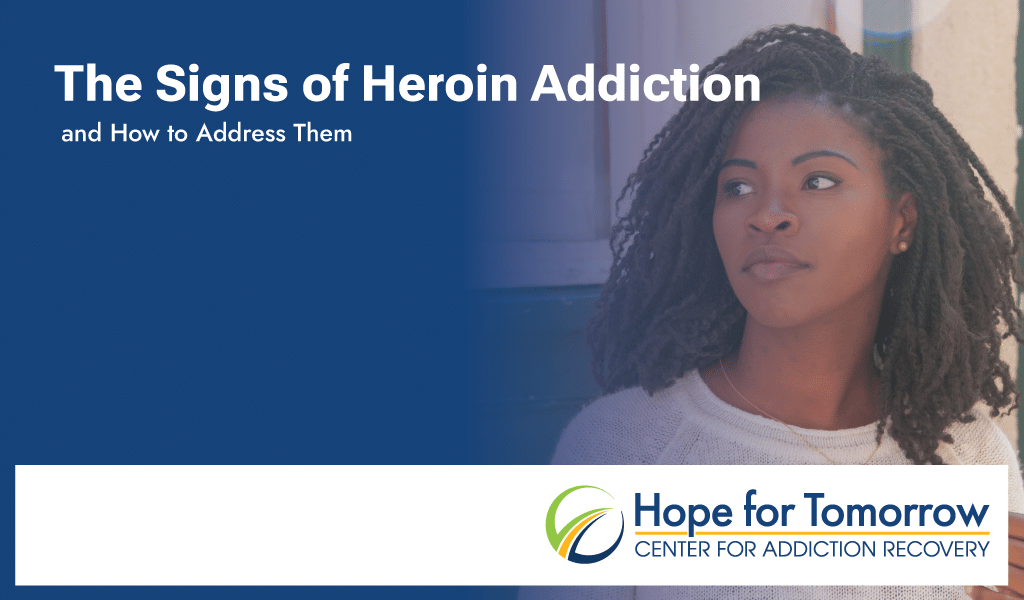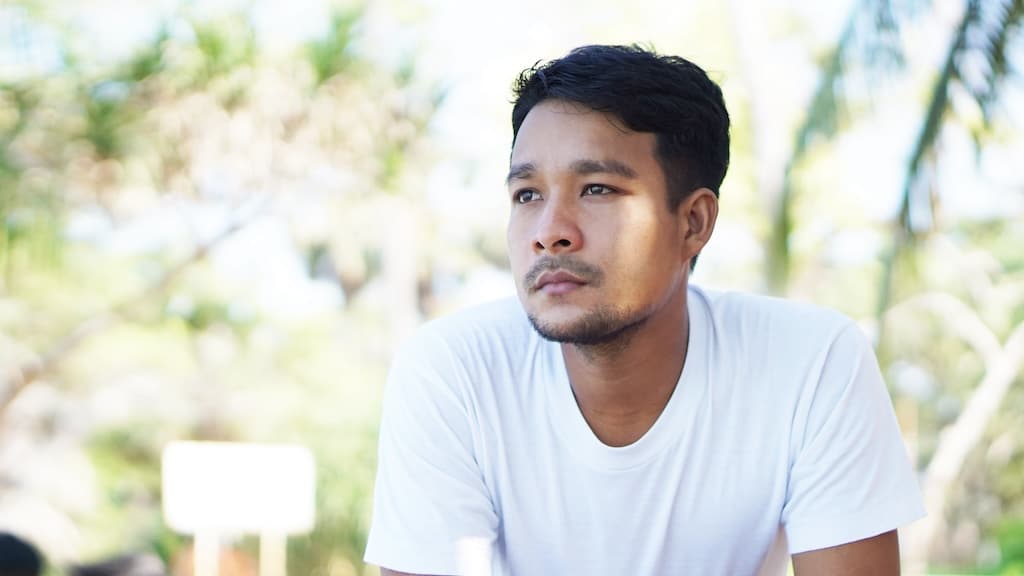

West Virginia has had the highest rate of drug overdose deaths in the entire country since 2014, with opioids like heroin being responsible for the majority of them. West Virginia also has higher rates of heroin use than the national and regional average. Heroin is clearly a concern in our community.
What do we do about it? Hope for Tomorrow makes heroin addiction treatment accessible for all. There’s an important role for people like you to play, too. Individuals with heroin use disorder have the best shot of overcoming it with support from friends and family. By recognizing the signs of heroin addiction, you can offer the encouragement they need.
Heroin has a big impact on the mind and mood. Some psychological symptoms related to heroin use are:
People who use heroin will likely start to withdraw from friends and family, and leave behind activities they once enjoyed for heroin. They may become secretive about their whereabouts and behavior, and request to borrow money without explanation. Their school and work performance might decline, and if they inject heroin, they’ll likely wear long sleeves and long pants even during warm weather to hide track marks.

Heroin also affects the body, causing some of the following symptoms:
Long-term heroin use can lead to liver and kidney disease. People who inject heroin are also at higher risk of bloodborne illnesses like HIV and AIDs due to shared needles. They also might end up with collapsed veins and abscesses, a weaker immune system, blood clots, and chronic pneumonia. Eventually, heroin use disorder takes a toll on every area of the body.
Aside from the health complications that come with heroin, including mental health conditions, there is always a risk of overdose. This is especially true for people who take multiple substances at once because they can have dangerous reactions to one another. Individuals who abstain from heroin for a while and return to it are also at a higher risk of heroin overdose, due to their body being able to tolerate less than before.
Anyone can develop a heroin addiction. It doesn’t discriminate, but there are some qualities that many people with a heroin use disorder have in common.
Genetics don’t make people more likely to try heroin, but they can make the brain more susceptible to addiction. People in environments where heroin is present, especially from a young age, are also more likely to get involved with it.
People with unaddressed mental health conditions, trauma, and a lot of stress are also at higher risk of developing a heroin use disorder. Heroin can seem like a promising coping mechanism, but in the end, it only makes mental health conditions worse.
Signs of heroin addiction are the same in teenagers as they are in adults, but you may see evidence based on school instead of a work environment. They might fall into a new group of friends, and stop attending extracurricular activities, or school altogether. Because they are still growing and learning about the world, they’re sometimes worse at hiding their substance use.
Paraphernalia is a huge sign that your teen or someone you know is using heroin. What they use to take it depends on each method of administration, but a lot of it is the same: needles, cotton balls, spoons, lighters, straws, and rolling papers are most common.

Maybe reading this blog confirms a suspicion you already had: someone you know has a heroin use disorder. Realizing that is the first step, but what’s the next one?
It’s time to sit down with that person and have a conversation. We recommend you look into some addiction treatment centers before talking to them. That way, when you suggest they seek treatment, you’ll already have something in mind. They may not respond well at first, but let them know you care about them, treat them with empathy, and don’t give up.
Hope for Tomorrow is here whenever you or your loved one are ready for heroin addiction treatment. If you’ve been turned down or burned by other facilities, know we welcome veterans, pregnant women, couples, people with medical conditions, and anyone in need with open arms. It’s easy for us to say that, but we can back it up with our evidence-based, individualized, dual-diagnosis treatment, too. We hope you’ll give us a call at 877-679-8162, and give us a chance to prove it.
Treatment today for a brighter tomorrow.